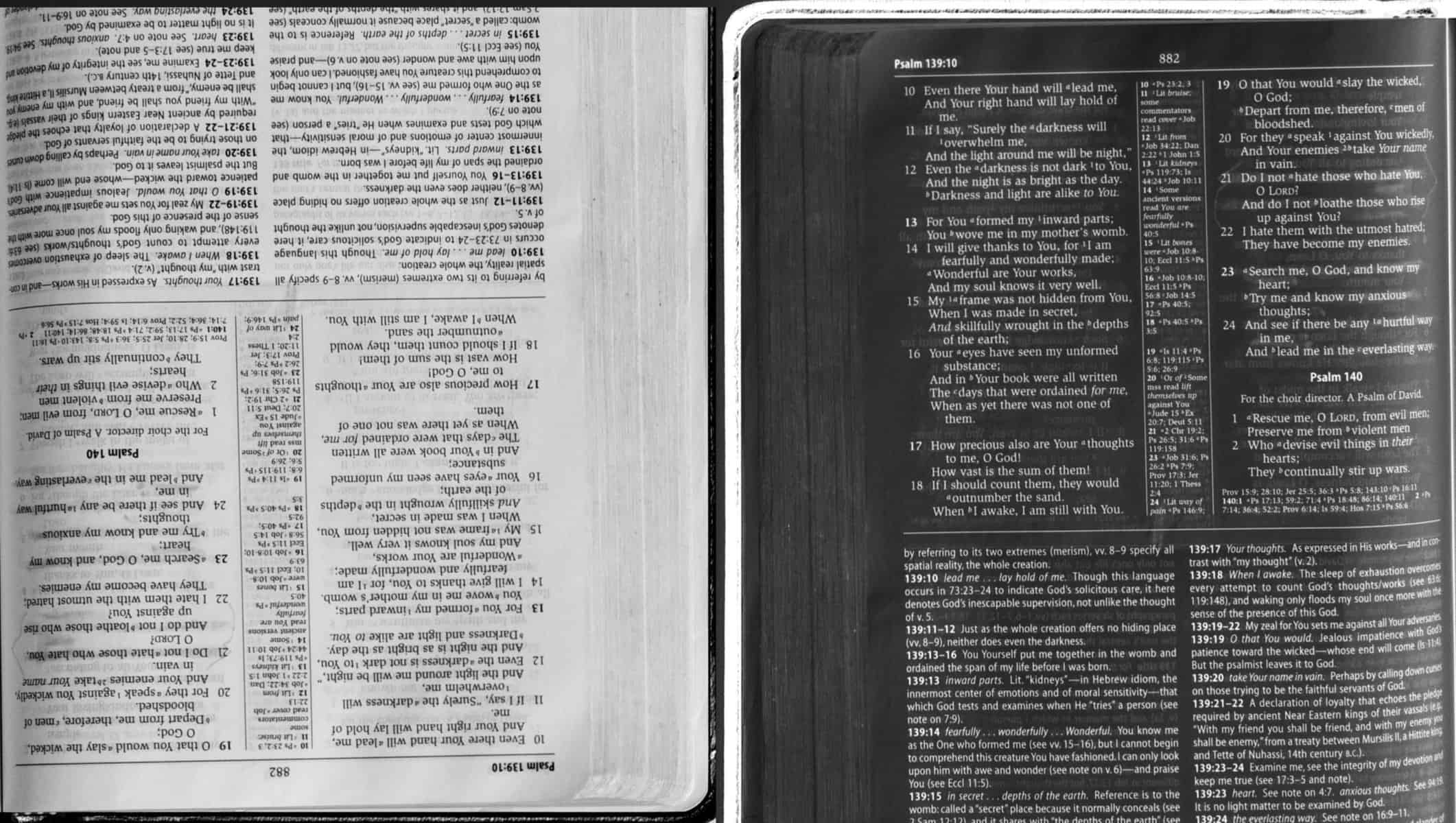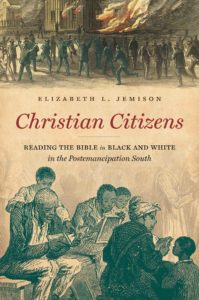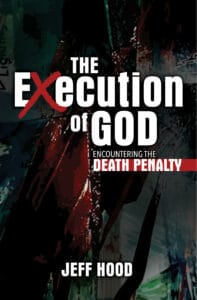 Editor’s Note: This excerpt was originally posted in April, 2021. We’re reposting in honor of Juneteenth.
Editor’s Note: This excerpt was originally posted in April, 2021. We’re reposting in honor of Juneteenth.
Speaking to the Women’s Interracial Conference in Memphis, Tennessee, in October 1920, Charlotte Hawkins Brown, a nationally known black educator, addressed a novel gathering of mostly white Protestant women concerned about racial injustice. Brown told the assembled white women that they held responsibility for the crisis of lynching and the injustices of segregation as she indicted the paternalistic family order that protected white families at the expense of nonwhite families. She relayed the indignities she experienced that week traveling on segregated trains to Memphis for the conference. In full view of other passengers, including “southern white women passing for Christians,” she had been forced out of a sleeping car by a mob of white men who boarded the train in Alabama. Accusing white women of “passing” as Christians linked racial passing with Brown’s insistence that Christian behavior must oppose racial injustice. Brown reminded the white women in her audience that they benefited from the white supremacist paternalism that oppressed black women, saying that “The Negro women of the South lay everything that happens to the members of her race at the door of the Southern white woman,” because “we all feel that you can control your men.” Black women could not successfully oppose lynching alone, and Brown charged: “We feel so far as lynching is concerned that, if the white woman would take hold of the situation that lynching would be stopped, and mob violence stamped.” If white women read occasional stories of black men’s insulting white women, they should “just multiply that by one thousand and you have some idea of the number of colored women insulted by white men.” She pressed her audience, urging, “I want you as Christian women, to ask yourself, ‘What would Jesus do if he were in my place?’ ” Brown did not give the white women in her audience any space to identify themselves as Christian women unless they worked to oppose lynching and to see that black women had the same gendered protections they did. White women were hypocrites if they welcomed the paternalistic protection of white men and ignored the violence that undergirded that so-called protection.[1]
The language that Charlotte Brown used to argue for shared Christian identity across a rigid color line and to articulate a prophetic critique of white supremacist Christianity built upon the work of black Christians throughout the postemancipation South. Black and white Christian citizenship claims constructed competing racial and theological agendas in the tumultuous decades after the Civil War. Religious and racial identities shaped each other as these contrasting Christian imaginations set the boundaries of what seemed possible in these years. White southerners transformed proslavery theology into a postemancipation paternalistic argument for a male-led white supremacist society, while for black Christian citizens, Christianity and the U.S. Constitution denounced all racial prejudice. Black communities consistently forced white southerners to address their claims for justice, even though they could not ultimately prevent the destruction of their civil and political rights. While many histories of this period focus on either white or black communities, this study brings these groups together to show how, even as they established separate churches in an increasingly segregated society, they were responding to one another’s claims to authentic Christian citizenship.
With each major change from emancipation to segregation, southern Christians remade their political framework with religious arguments that defended the social order they found most familiar. Southerners from many backgrounds drew on biblical stories as they debated what true Christian behavior demanded. Freedpeople prayed to the God of Abraham, Isaac, Jacob, and Abraham Lincoln. Black voters invited Republican politicians to speak in their churches, and politicians in turn praised black citizens for being like the persecuted Christians in the Roman Empire. White southerners legitimized insurgent Democratic Redeemers as defenders of paternalistic Christian families. When Mississippi’s constitutional convention disenfranchised black voters, they paused deliberations for a day of prayer to seek God’s blessing on their work.
White southern Christians used biblical arguments, crafted from antebellum proslavery claims, to congratulate themselves for resisting federal incursions in Reconstruction and black efforts at self-determination and equality.
Christian claims about how politics and society should operate proved powerful visions both for advocates for black citizens’ equal rights and for segregation’s architects. Black communities argued for civil and political rights as fellow Christians as well as fellow citizens with white southerners. They drew on black abolitionist claims to denounce all racial prejudice as sin. Their biblical and political arguments condemned white southerners’ hypocrisy in the face of segregation policy and racial violence. White southern Christians used biblical arguments, crafted from antebellum proslavery claims, to congratulate themselves for resisting federal incursions in Reconstruction and black efforts at self-determination and equality. They insisted that they alone maintained the strict biblicism that true Christian faith demanded, while their northern counterparts polluted Christianity by believing fashionable extrabiblical notions of human rights and political activism over biblical truth. White southerners crafted a new paternalistic rhetoric that transformed antebellum proslavery paternalism into a white supremacist social hierarchy that had lost all concern for black lives. Across lines of race and denomination, Christian claims diverged sharply, yet the arguments that white and black Christians developed in these years would reverberate across the South and the nation.
White Christians showed how arbitrary the distinctions of race were in the late nineteenth century as they strengthened whiteness. Yet even when working for clearly white supremacist aims, they were forced to acknowledge the impossibility of whiteness and blackness as distinct categories. Amid emancipation in Mississippi, antislavery northern white missionaries in 1864 hired Eustis Beady, a “nearly white” formerly enslaved man with “gifts as a preacher,” “until we can do better.” Describing formerly enslaved Beady as “far more intelligent than the most of them,” missionaries linked Beady’s racial, intellectual, and religious ability. When Southern Methodists praised CME Bishop Isaac Lane for preaching on personal moral responsibility rather than political activism to his black congregation in the late 1870s, they linked his religious message to his body, which was “tall, erect, and showing in his general appearance a preponderance of the Anglo-Saxon blood.” Because Lane did not urge political activism, but instead personal religious piety, his physical body—marked, as Lane acknowledged himself, as the son of his white enslaver father and his enslaved mother—testified to the sexual power of white men and reaffirmed an increasingly rigid color line. Southern Democrats voiced fears of social equality, namely sex between black men and white women, to justify lynching, yet they ignored white men’s past and present sexual violence toward black women. Later, white Mississippians added to their 1890 state constitution a prohibition of marriage between “a white person” and “a negro or mulatto, or person who shall have one-eighth or more of negro blood.” That white lawmakers needed various qualified terms for the nonwhite category showed the difficulty of defining race even for white supremacist lawmakers. Their legal and extralegal work preserved whiteness, strengthened white families, and protected white women’s supposed sexual purity at the expense of nonwhite families and communities, and particularly black women’s lives and bodies.[2]
Black communities argued for civil and political rights as fellow Christians as well as fellow citizens with white southerners. They drew on black abolitionist claims to denounce all racial prejudice as sin.
The history of the late nineteenth-century South shows that progress—whether economic, political, or social—does not proceed in a linear forward march through time. Many of the civil and political rights that black southerners achieved during Reconstruction disappeared as white southern Democrats gained power. White Christians worked to erase even the memory of these rights. Yet this book’s trajectory is not merely one of tragedy. Black churches had grown explosively across the region, with dozens of Christian periodicals, thousands of new church buildings, and hundreds of thousands of new church members. From one-room primary schools to university-level seminaries, black educational institutions covered the region, with more black educators administering institutions that had been run earlier by white Christians. Many more black families owned property and businesses by the end of the century. Throughout these years, black Christians sometimes disagreed sharply with each other over different strategies for political activism and religious devotion. They never operated as a unified bloc, and in the range of attitudes they advocated—whether directly defending equal civil and political rights, demonstrating black competence through erudite sermons, or emphasizing gendered Christian piety—black Christians laid out many of the religious arguments that would appear in twentieth-century movements for social and political justice. No universal black church or single strategy for resistance existed in these years, even as black Christian communities marshaled religious and political arguments against the violence of new paternalistic rhetoric.
As black and white Christians wrestled with the often-intimate relationship between Protestant Christianity and white supremacy, they set the stage for national religious and political conflicts that reverberate to our day. White Christians in the postemancipation South argued against black civil and political rights, saying that they must follow biblical teachings against new cultural innovations, much as later white Christians would resist movements for racial and gender equality as challenges to their Christian fundamentals. In both cases, conservative white Christians resisted rights-based claims for justice by citing biblical teachings about proper family values. Defending the white family against various challenges—real and imagined—became a primary religious and political goal. Because white southerners argued that antislavery northern Christians held heretical views and that black Christians were racially and religiously inferior, they rejected dialogue with those who disagreed with them and isolated their communities from all who might challenge their views of Christianity, history, and politics.

 This article is excerpted from the conclusion of Christian Citizens: Reading the Bible in Black and White in the Postemancipation South by Elizabeth L. Jemison. Copyright © 2020 by the University of North Carolina Press. It appears here by kind permission of the publisher.
This article is excerpted from the conclusion of Christian Citizens: Reading the Bible in Black and White in the Postemancipation South by Elizabeth L. Jemison. Copyright © 2020 by the University of North Carolina Press. It appears here by kind permission of the publisher.
Notes:
[1] First quoted in Gilmore, Gender and Jim Crow, 201; Brown, “Speaking Up for the Race at Memphis, Tennessee, October 8, 1920,” in Lerner, ed., Black Women in White America, 467–72.
[2] Rev. Samuel G. Wright to Rev. George Whipple, Natchez, Mississippi, March 9, 1864, AMA Archives, 71610; J. W. McNeil, “The Colored Methodist Episcopal Church of America,” NOCA, December 6, 1877; Constitution of the State of Mississippi, Article XIV, Section 263. On the centrality of sex and gender in the creation of white supremacy, see Hodes, White Women, Black Men; Hale, Making Whiteness.


